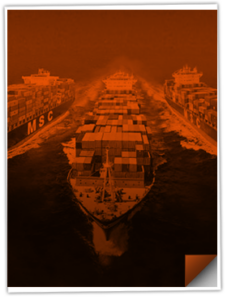Customer Advisory: LA/LGB “Emergency Fee” SurchargeCustomer Advisory: LA/LGB “Emergency Fee” Surcharge
- October 29, 2021
As previously mentioned in our most recent Shap Talk, the ports of Los Angeles and Long Beach have announced a “Container Access Dwell Fee,” also called an “Emergency Storage Fee” to be imposed on November 1st. Carriers will be expected to pay a fee of $100 on the 9th day of dwell time for each container. For rail containers this will start on the 6th day. The charges will increase by $100 each day in a compounding fashion ($100 for Day 9; $300 for Day 10; $600 for Day 11, etc). This announcement comes in response to the initiative from the Biden administration to clear California port congestion.
The ports will seek approval from their boards of harbor commissioners in a meeting today. Importers and non-vessel operating common carriers (NVOCCs) expect that the charges will be passed to them, and ocean carriers have already announced the same. The meetings will reveal how this might be possible, despite regulations from the Federal Maritime Commission (FMC). The FMC requires that all freight tariffs are filed prior to the cargo being tendered to the carriers, which means carriers may not be able to pass on the costs for cargo currently arriving on ships. FMC Commissioner Rebecca Dye said she will recommend to the FMC that it establish an advisory board for terminal operators and ocean carriers.
Carriers, importers, brokers and freight forwarders have openly disputed the effectiveness of the fee to clear out cargo. Carriers believe that they are beholden to importers in all situations where they do not control the door delivery. The rest of the trade cites obstacles out of their control including the dislocation of empty containers, restrictions connected to returning empties, chassis availability, availability of truck power, and the tremendous scarcity of local warehouse space.
Shapiro will continue to watch these developments and report breaking news as it occurs.



